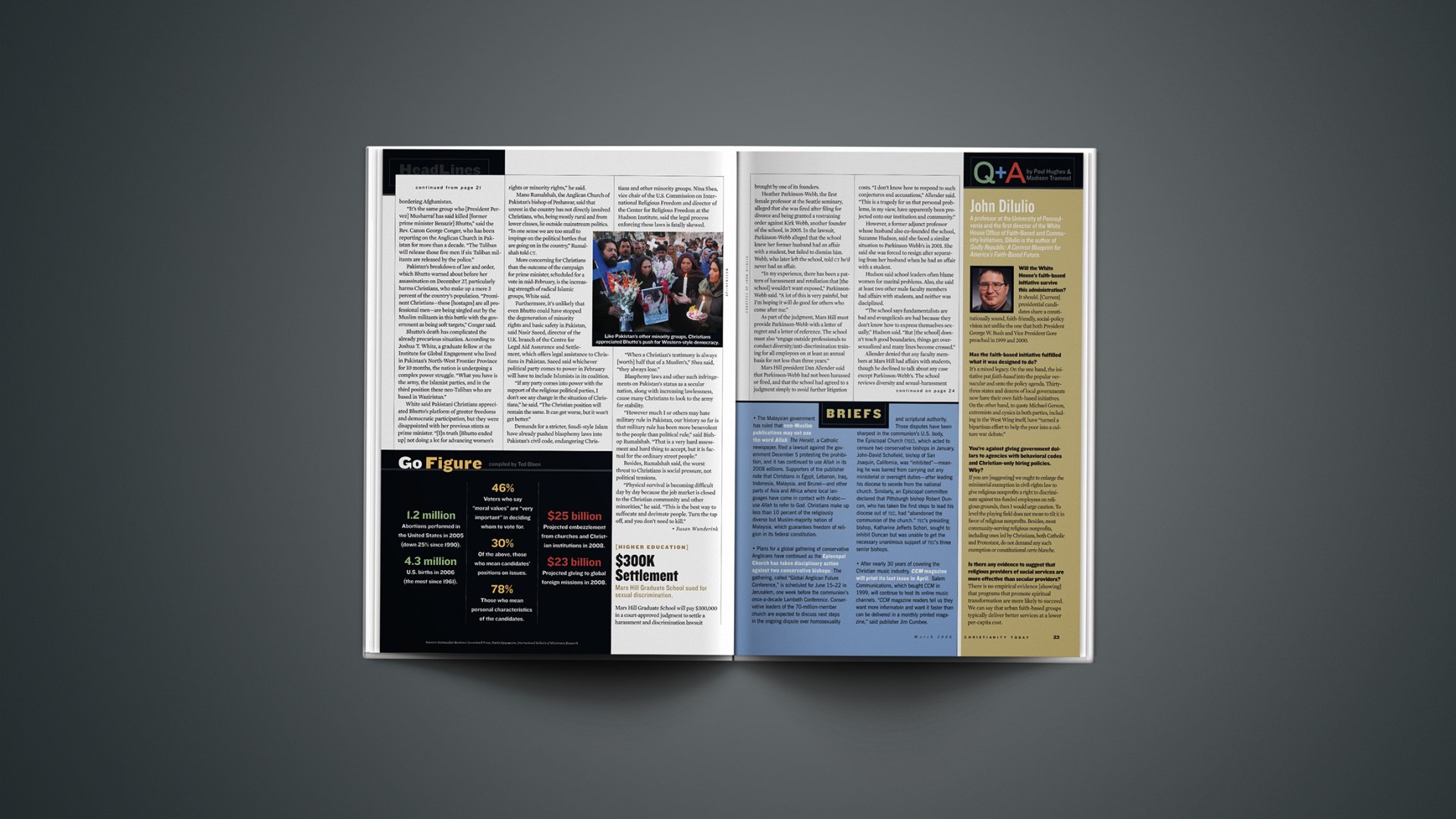A professor at the University of Pennsylvania and the first director of the White House Office of Faith-Based and Community Initiatives, DiIulio is the author of Godly Republic: A Centrist Blueprint for America’s Faith-Based Future.
Will the White House’s faith-based initiative survive this administration?
It should. [Current] presidential candidates share a constitutionally sound, faith-friendly, social-policy vision not unlike the one that both President George W. Bush and Vice President Gore preached in 1999 and 2000.
Has the faith-based initiative fulfilled what it was designed to do?
It’s a mixed legacy. On the one hand, the initiative put faith-based into the popular vernacular and onto the policy agenda. Thirty-three states and dozens of local governments now have their own faith-based initiatives. On the other hand, to quote Michael Gerson, extremists and cynics in both parties, including in the West Wing itself, have “turned a bipartisan effort to help the poor into a culture war debate.”
You’re against giving government dollars to agencies with behavioral codes and Christian-only hiring policies. Why?
If you are [suggesting] we ought to enlarge the ministerial exemption in civil-rights law to give religious nonprofits a right to discriminate against tax-funded employees on religious grounds, then I would urge caution. To level the playing field does not mean to tilt it in favor of religious nonprofits. Besides, most community-serving religious nonprofits, including ones led by Christians, both Catholic and Protestant, do not demand any such exemption or constitutional carte blanche.
Is there any evidence to suggest that religious providers of social services are more effective than secular providers?
There is no empirical evidence [showing] that programs that promote spiritual transformation are more likely to succeed. We can say that urban faith-based groups typically deliver better services at a lower per-capita cost.
Related Elsewhere:
Godly Republic will be available from ChristianBook.com and other retailers this spring.
More articles on law and politics are available in our full-coverage section.










